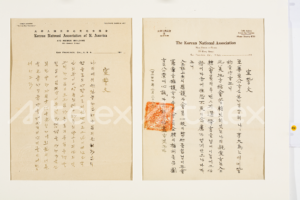Lee Dae-wi (1893 – 1928) was a Korean independence activist who played a significant role in the Korean American community’s efforts for the liberation of Korea. He was deeply involved in the Korean independence movement, particularly in raising funds, promoting the cause, and educating the younger generation within the Korean American community.
In the early 1910s, he moved to the United States, where he continued his studies and began to engage in the independence movement.
After moving to the United States, Lee Dae-wi became a prominent figure in the Korean American community’s independence efforts. He was actively involved in organizations such as the Korean National Association, where he played a crucial role. One of his major activities was fundraising for the independence movement, organizing various events to unite the Korean American community and gather financial support.
In addition, Lee Dae-wi worked tirelessly to promote Korea’s independence cause. He used various media outlets in the United States to publicize Japan’s atrocities and Korea’s struggle for independence, urging the U.S. government and public to support Korea’s fight for freedom. He was also deeply committed to the education of Korean youth, working to prepare them to contribute to the independence movement.
One of the significant artifacts Lee Dae-wi left behind is the **Korean National Association Oath written in 1914″, which serves as a key piece of evidence of the association’s activities and Lee Dae-wi’s dedication to the independence cause.
Lee Dae-wi passed away suddenly on January 30, 1928, in the United States due to an illness. He was 34 years old. Despite his short life, Lee Dae-wi’s dedication and efforts left a lasting impact on the Korean American community and the history of Korea’s independence movement.

